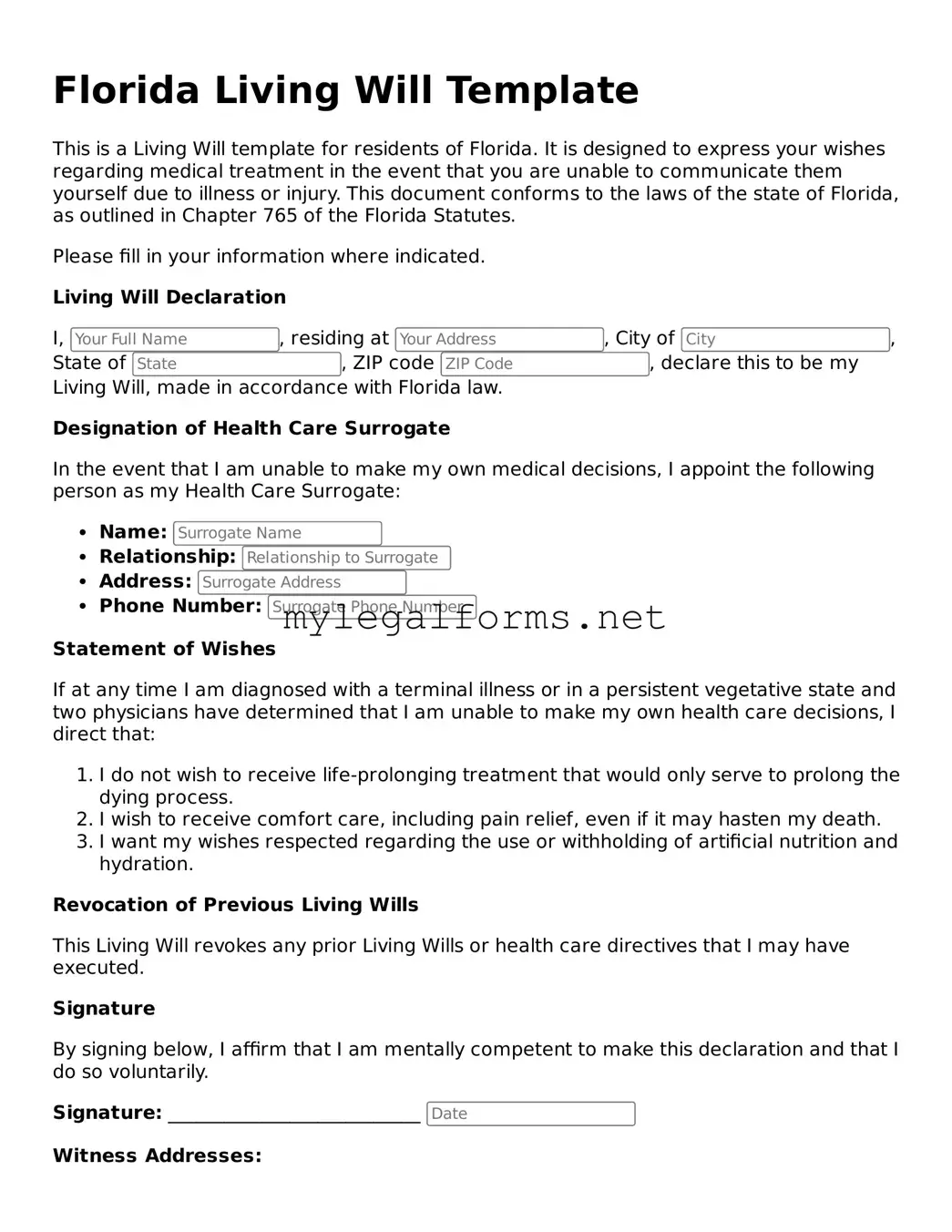Living Will Document for Florida State
A Florida Living Will form is a legal document that allows individuals to express their wishes regarding medical treatment in the event they become unable to communicate those wishes themselves. This form is essential for ensuring that your preferences about end-of-life care are respected. Understanding its importance can provide peace of mind for you and your loved ones.
Launch Living Will Editor

Living Will Document for Florida State
Launch Living Will Editor

Launch Living Will Editor
or
⇓ PDF Form
Complete the form at your pace — fast
Finish your Living Will online and download the final version.